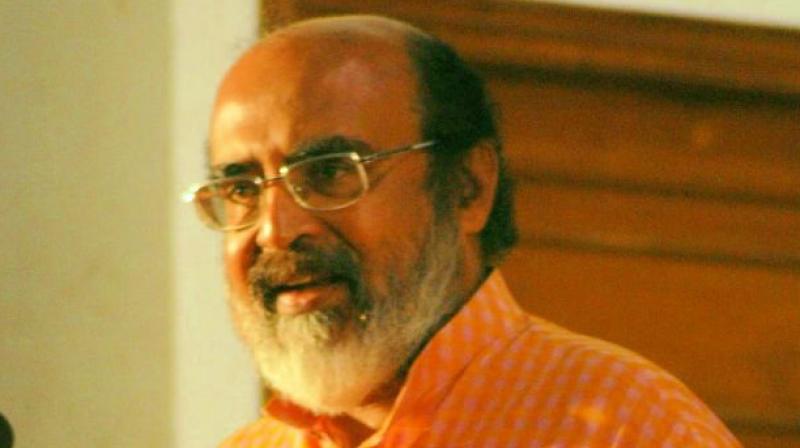Non-expenditure plans to see a cut: Dr T M Thomas Isaac
The minister hopes to save at least Rs 800- Rs 1000 crore by way of this exercise.

THIRUVANANTHAPURAM: Finance minister Dr T.M. Thomas Isaac will resort to subtle unconventional fiscal strategies to chisel non-plan expenditure into shape in his 2017-18 budget. The minister hopes to save at least Rs 800- Rs 1000 crore by way of this exercise. Any attempt to squeeze non-plan expenditure in a ruthless manner will be politically tricky. Committed historical liabilities like salaries, interest, and pensions (SIP), which together form 60 per cent of the non-plan revenue expenditure, cannot be touched. Even ‘travel expenses’ of various departments, which also eats up a good chunk of revenue, cannot be reduced as this is constitutionally exempted from the purview of appropriation control.
So this leaves just a portion of what finance minister Thomas Isaac terms ‘non-SIP’ expenditure to tinker with in his 2017-18 Budget. Even here, rather than curtailing expenditures, Isaac will be trying to address some procedural lapses. An internal audit conducted by the finance department has found that during 2015-16, there was an overall excess expenditure of nearly '1000 crore under 750-odd of the total 4340 sub-heads. It has been found that the excess was caused mainly as a result of the failure of administrative heads to enforce appropriation control over expenditure and to conduct periodical reconciliation of figures of expenditure.
For instance, Rs 2 crore was provided in the budget for the implementation of the scheme ‘Protection of Kavus, Ponds and Altharas’ attached to temples. However, the chief controlling officer (Devaswom) gave sanction to withdraw Rs 10.65 crore, resulting in an excess expenditure of '8.65 crore under the scheme. In another case, this one related to the deployment of Central Reserve Police Force the chief controlling officer allowed an excess expenditure of nearly Rs 7 crore, though only a token amount of '1000 was earmarked in the budget. “The executive has no power to spend more on the services over and above the budget grants authorized by the legislature,” a top finance department official said. Therefore, it has been decided to bring chief controlling officers, subordinate controlling officers and drawing and disbursing officers under strict supervision.

